|
|
|
Bharti Looks to Make Digital Unit a Parallel Co to Airtel
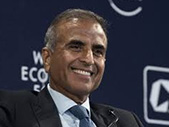 Rejig to remove telecom regulatory overhang over Airtel Digital, offer monetisation options Rejig to remove telecom regulatory overhang over Airtel Digital, offer monetisation options
Bharti Airtel, which has housed all its digital assets under Airtel Digital unit, is discussing making it a parallel entity to the telco, opening up the option of monetising a separate asset in the future, said chairman Sunil Bharti Mittal. The new structure could remove telecom regulatory overhang over Airtel Digital, which could even be listed in two three years.
In an interview to ET, Mittal said going forward, expansion in financial services — which includes hopes of becoming a small finance bank, but not a full-fledged one — would be a big focus area for the telco.
Bharti Airtel itself has pivoted into a technology company, he said, and has emerged stronger from a bloody tariff battle since the entry of Reliance Jio in September 2016, with a roughly 35% revenue market share, its highest ever. “Perhaps, some people may have underestimated its (Airtel’s) inner strength," he said.
“There is something called Airtel Digital now, under which all the digital entities are being housed. Around 119 million active monthly users are sitting here…a lot of advertising revenue is going up,” Mittal told ET. “What we are thinking about is a step-up company, which will then be the holding company of Airtel and Digital…Digital could become parallel (to Airtel)…the thinking is to restructure it so that we have similar outcomes (like investments in Jio Platforms).”
He added that the reorganisation will take several months and investments in the digital business will be sought after it is scaled up. From the ₹100 crore revenue currently, Airtel Digital should scale up to ₹1,000 crore.
Jio Platforms, which houses the digital and telecom assets of Reliance Industries, last year received over ₹1.52 lakh crore in investments by giving up nearly 33% stake to 13 investors, including Facebook, Google, Intel and Qualcomm.
But Mittal said that the new structure that Airtel was planning would be different from what RIL had done. The Mukesh Ambani-owned company had established Jio Platforms as its direct unit which, in turn, became the parent of Reliance Jio, India’s telecom market leader.
“…you get a piece of what is on top (Jio Platforms) and thus, also a piece of Jio. But here it (Airtel Digital) could be sitting alongside (Airtel),” which would mean potentially two monetisable assets, said Mittal. “You have a listed company and you can bring a listing here too after two-three years.”
Headed by Adarsh Nair, Airtel Digital houses the company’s digital properties including Wynk music, Thanks, Xstream, payments, and products such as Airtel IQ, Safe Pay, among others, and employs over 1,500 people, which is being scaled up rapidly.
“Right now, it's just building up…Lots of people, from Google, Facebook, have come back and are working in this… IQ has been launched, Safe Pay has just been launched with a bank,” said Mittal. He said the digital business will be targeted at enterprise customers and its focus will be ‘B2B2C’.
The reorganisation will also ensure that digital services – which aren’t regulated by telecom licences – don't have the regulatory overhang of the telecom service, said Mittal. Revenue from digital services will be kept separate from Bharti Airtel, and thus will not be part of the calculation of adjusted gross revenue (AGR), on the basis of which licence fees and spectrum usage charges are paid.
Airtel Friday said its board will meet on February 17 to consider restructuring of its businesses.
Speaking on the telecom business, Mittal said as per Airtel’s understanding, the telco has paid its AGR dues for the next four years, given its upfront payment of Rs18,000 crore against a demand of some Rs40,000 crore.
He added that Airtel had raised $12 billion in the last two-and-ahalf years and didn’t face immediate monetisation needs.
But if needed, monetisation options included using InvIT (infrastructure investment trust) structures which allow for raising funds while allowing operational control. “There are large assets sitting in towers: 42% in Indus Towers is worth Rs 25,000 crore, also the large amount of fibre could be tens of thousands of crores.” In addition, its business in Bangladesh is worth a billion dollars, Mittal said.
Airtel has approached the Reserve Bank of India for a small bank permit, which would allow it to begin lending to its customers who currently can only deposit with the payments bank. “Right now, we are just connecting other lenders to our customers, I would rather do my own risk book, at least a small one,” Mittal said. He added that the payments bank has led to customer stickiness at Airtel and reduced churn, or users leaving its network. (Source: Economic Times)
|
GOVT LIKELY TO NET ANOTHER ₹8,000 CR FROM MARCH SPECTRUM AUCTION
 Airtel, Jio may Spend More on Airwaves. Trigger: Shorter notice for new tech use, such as 5G on 4G airwaves. Bharti Airtel and Reliance Jio Infocomm may spend 15-20% more than previously projected to buy spectrum in the March auctions, prompted by the government’s move to halve the notice period that operators need to give to offer new technologies such as 5G on 4G airwaves, said analysts. Airtel, Jio may Spend More on Airwaves. Trigger: Shorter notice for new tech use, such as 5G on 4G airwaves. Bharti Airtel and Reliance Jio Infocomm may spend 15-20% more than previously projected to buy spectrum in the March auctions, prompted by the government’s move to halve the notice period that operators need to give to offer new technologies such as 5G on 4G airwaves, said analysts.
As a result, the government could net as much as ₹8,000 crore more than the roughly ₹40,000 crore estimated from the March sale of 4G airwaves. Around a fourth of this could come into the government coffers this fiscal itself, as upfront payment. Both Airtel and Jio have 5G-ready networks. Bulking up existing spectrum will allow telcos to launch 5G services immediately without waiting for sale of 5G airwaves.
Spending an Extra 15-20%
Telcos can do this on a limited scale at least, in metro cities and Category A circles. For a broader rollout, they will need the 5G spectrum in the 3.3-3.6 GHz frequencies. The government, though, is yet to specify the schedule for auctioning 5G airwaves.
As per a recent tweak to spectrum auction rules, carriers can now offer new technologies, such as 5G, on their existing spectrum by giving six months’ notice to the government. Previously, there was a one-year notice period.
“Jio and Airtel could each spend an extra 15-20% on additional 4G airwaves in select bands in the metro and category A circles, as these 4G spectrum assets can now be deployed for future 5G use quickly,” Nitin Soni, senior director at global ratings agency Fitch, told ET.
Jio, the sole profit-making telco, was initially estimated to spend ₹20,000 crore in the upcoming airwaves sale while Airtel was forecast to spend ₹10,000-15,000 crore. Vodafone Idea, financially the weakest of the three private telcos, is unlikely to participate meaningfully in the sale.
Soni expects Jio to bid only for additional 800 MHz spectrum, besides renewing its expiring airwaves in this key 4G band, but sees Airtel targeting additional 4G spectrum in both 900 MHz and 1800 MHz bands.
Airtel and Jio didn’t immediately respond to ET’s emails seeking comment.
READY FOR 5G
Experts foresee heightened interest in the 4G bands in the March sale, after Airtel recently demonstrated live 5G services on its 4G network using the 1800 MHz band and said it could commercially launch 5G with existing 4G airwaves in a few months. Market leader Jio, too, said it was ready to launch 5G in the second half of 2021 on its own technology. Jio also said it was 5G-ready and had developed its own ecosystem that would make it a global 5G vendor.
Analysts, though, maintained that a broader 5G services rollout would happen only after the Department of Telecommunications auctions mid-band 5G spectrum in the 3.3-3.6 GHz frequencies, the 5G devices ecosystem matures and more India-relevant 5G use cases emerge.
“Airtel and Jio would only be able do token 5G launches in select markets with 4G spectrum,” said Rohan Dhamija, partner & head (India & Middle East) at Analysys Mason. “There may be limited additional interest in select 4G bands with the halving of the notice period to switch to 5G. But Airtel and Jio won’t be able to offer a real 5G experience to customers without the actual mid-band spectrum and a mature devices ecosystem, which is still some time away.” (Source: Economic Times)
|
Chinese telecom giant Huawei ropes in former Brazilian President Michel Temer to advise on 5G
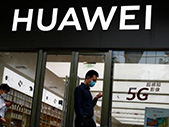 Chinese telecom giant Huawei has hired former Brazilian President Michel Temer as an advisor as the auction for next-generation 5G wireless networks approaches in the country, ZDNet reported. Chinese telecom giant Huawei has hired former Brazilian President Michel Temer as an advisor as the auction for next-generation 5G wireless networks approaches in the country, ZDNet reported.
Chinese telecom giant Huawei has hired former Brazilian President Michel Temer as an advisor as the auction for next-generation 5G wireless networks approaches in the country, ZDNet reported.
The Covid-19 pandemic delayed the auction of Brazil`s 5G auction, originally set for March 2020. It is now expected to be held early this year.
Huawei confirmed the appointment of Temer, a constitutional law professor and lawyer, in a statement, saying that the company was "committed to transparency with all stakeholders," said the report on Friday.
The appointment of Temer comes at a time when the company is getting threats of getting banned from supplying 5G equipment in several countries due to security perceptions.
The appointment of Temer gains significance in view of his proximity with current Brazilian President Jair Bolsonaro.
In his current role Temer will be tasked to offer legal advice on 5G implementation in Brazil.
However, Huawei still faces hurdles in Brazil as due to requests from then US President Donald Trump, Bolsonaro has demonstrated an inclination to stop the Chinese telecom giant from developing new mobile networks in the country.
Temer became Brazil`s President after Dilma Rousseff`s impeachment in 2016. His tenure came to an end at the end of 2018. (Source: Zee Business)
|
Bharti Airtel, Vodafone Idea may get DoT relief on penalties
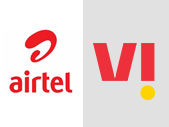 In fact, before the matter was sent to Trai for a review, a seven-member internal committee of DoT had rejected by 4:3 the regulator's recommendation to levy the penalty and had left the final decision to the DCC. In fact, before the matter was sent to Trai for a review, a seven-member internal committee of DoT had rejected by 4:3 the regulator's recommendation to levy the penalty and had left the final decision to the DCC.
The department of telecommunications (DoT) is likely to finally reject the Telecom Regulatory Authority of India’s (Trai) recommendation to levy a cumulative penalty of Rs 3,050 crore on Bharti Airtel and Vodafone Idea for not providing points of interconnection to Reliance Jio in 2016 when it had commenced operations.
Officials told FE that the view has gained currency that the time is not conducive for burdening the operators with financial penalty as they are financially stretched and have to pay their adjusted gross revenue dues. Further, since the government has now announced that the next round of auctions will be held in March, it doesn’t want to take any action upsetting operators which may constrain them from participating in the auctions. Since a new chairman has taken charge at Trai, there is also feeling that the regulator will not feel slighted and issue can be safely buried.
Though on the insistence of the Trai, the Digital Communications Commission (DCC), the apex decision-making body of the department of telecommunications, had approved the penalty in July last year, the matter has still not got the approval of the telecom minister, Ravi Shankar Prasad. The DoT also feels that if the demand notices raised, Bharti and Vodafone Idea are sure to challenge it in the Telecom Disputes Settlement and Appellate Tribunal (TDSAT), and the government is not keen at this stage to enmesh itself in yet another legal tussle.
Officials said the DCC had tried its best to get the matter sorted by asking the Trai to review the amount as the sector was under financial stress, but, unfortunately, the regulator stuck to its guns. In fact, before the matter was sent to Trai for a review, a seven-member internal committee of DoT had rejected by 4:3 the regulator’s recommendation to levy the penalty and had left the final decision to the DCC.
To be sure, even a year back the DCC could have ignored the Trai’s recommendation and gone ahead with either scrapping the penalty or lowering the amount. This is because the Trai does not have powers to levy fines. It had suo motu issued the recommendation to the DoT based on a complaint by Reliance Jio. As a licensor the power to levy fines and or cancel licences lie with the DCC which may seek recommendations from the Trai, but in this case it was not so.
In October 2016, Trai had recommended that a fine of Rs 50 crore be levied on Bharti Airtel and Vodafone each in 21 circles, while a similar amount be levied on Idea Cellular in 19 circles. Thus the penalty for Bharti and Vodafone was Rs 1,050 each, while for Idea it was Rs 950 crore. In August 2018, Vodafone and Idea merged and was christened Vodafone Idea.
The Trai had recommended fines after it had issued show-cause notices to the three operators towards end-September 2016 after finding high level of congestion in their networks, leading to call failures made to and from Jio network beyond the permissible limits.
The three incumbent companies in their defence had said that there is a 90-day period since the commercial launch of services by an operator for providing the demanded points of interconnect and they conformed to this deadline. They said it was unfair of Trai to monitor congestion levels on a daily basis and recommend a fine. Ideally, it should have measured congestion on a monthly basis, where the results would have been different.
The quality of service norms prescribe that congestion level should not exceed beyond 0.5%, which means that of 1,000 calls not more than five should fail. The congestion level is different from call drops. In the former a call does not get connected whereas in the latter a call drops after it is connected. For call drop, the failure should not be more than 2%.
The regulator has no powers to levy penalty on the operators who do not follow its directive. The maximum it can do is to chargesheet them in a civil court. (Source: Financial Express)
|
Moody's revises Airtel ratings outlook to 'stable' from 'negative'
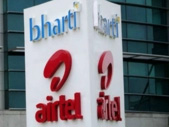 Moody’s Investor Service has affirmed Bharti Airtel’s Ba1 corporate family rating (CFR) and revised the outlook to `stable’ from `negative,’ following clarity around adjusted gross revenue (AGR) dues payment timelines and improved profitability of the Sunil Mittal-led telco’s India mobile services business. Moody’s Investor Service has affirmed Bharti Airtel’s Ba1 corporate family rating (CFR) and revised the outlook to `stable’ from `negative,’ following clarity around adjusted gross revenue (AGR) dues payment timelines and improved profitability of the Sunil Mittal-led telco’s India mobile services business.
Moody’s Investor Service has affirmed Bharti Airtel’s Ba1 corporate family rating (CFR) and revised the outlook to `stable’ from `negative,’ following clarity around adjusted gross revenue (AGR) dues payment timelines and improved profitability of the Sunil Mittal-led telco’s India mobile services business.
The global ratings agency said Airtel’s core India mobile business has benefited from a combination of reduced competition, steady 4G customer adds and tariff hikes taken last December.
“The ratings affirmation and change in outlook to stable reflect improving profitability at Bharti's core Indian mobile business, because of a moderation in industry competition, an increase in its 4G customer base, and a tariff hike from December 2019,” Annalisa DiChiara, Moody’s senior vice president, said in a media statement Friday.
A virtual summit that will bring key stakeholders of the telecom industry together to deliberate potential strategies & bottlenecks in India’s Digital Network Transformation.
Staggered payment resolution related to AGR liabilities, she said, “is a positive development,” adding that Airtel’s operating flexibility is improving and that the telco would benefit from a gradual expansion of profitability that provides a buffer against any material deterioration in credit measures and also supports a steady deleveraging.
Moody’s said the staggered AGR payment plan would alleviate pressure on Airtel’s cash flow, which means some of the proceeds Bharti raised earlier this year to fund AGR dues, can instead be applied to debt reduction. “And according to the (Bharti) management, this is already underway.”
Airtel shares closed 1.19% lower at Rs 491.65 on BSE Friday.
Earlier this month, the nation’s top court gave telcos 10 years to pay their balance AGR dues. Airtel pending AGR liabilities are at Rs 25,976 crore.
The telco had reported a consolidated net loss of Rs 15,933 crore in the June quarter, mainly due to one-time expenses related to its AGR dues. But its India mobile services operation continued its recovery, with average revenue per user (ARPU) rising for the fifth straight quarter to Rs 157 even though net 4G user adds slowed down amid the Covid crisis. (Source: ETTelecom)
|
Eyeing BSNL: Tech Mahindra says can build and run full-fledged 4G, 5G networks
 IT services provider Tech Mahindra has the capability to build and run an entire 4G or 5G network in India, and its partnership with Japanese telco Rakuten will help it get more meaningful business in India’s telecom industry, a senior executive said. IT services provider Tech Mahindra has the capability to build and run an entire 4G or 5G network in India, and its partnership with Japanese telco Rakuten will help it get more meaningful business in India’s telecom industry, a senior executive said.
IT services provider Tech Mahindra has the capability to build and run an entire 4G or 5G network in India, and its partnership with Japanese telco Rakuten will help it get more meaningful business in India’s telecom industry, a senior executive said.
The company is also looking for strategic investments and acquisition in companies to further bolster its telecom product and services portfolio.
“We can built and run an entire 4G and 5G or any enterprise network. We have done that already. We bring to the table our ability to design, to plan, to integrate and deploy and then to manage the entire suite of network capabilities, including designing various parts to it in a disaggregated world,” Manish Vyas - President, Communications, Media & Entertainment Business, and the CEO, Network Services, Tech Mahindra, told ET. (Source:ETTelecom)
|
Ericsson India hopes to win contracts in Indian telecom market on strength of technology
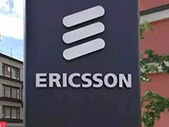 Amid heightened anti-China sentiments in India, Swedish telecom equipment maker Ericsson has said it hopes to win contracts in the Indian telecom market on the strength of its technology leadership, and added that as a practice, the company does not base business plans on matters not under its control. Amid heightened anti-China sentiments in India, Swedish telecom equipment maker Ericsson has said it hopes to win contracts in the Indian telecom market on the strength of its technology leadership, and added that as a practice, the company does not base business plans on matters not under its control.
Ericsson India head Nitin Bansal said that the company remains "very confident" of its technology prowess. Bansal was responding to a question on whether the anti-China sentiments in the country would provide a competitive edge to non-Chinese gear vendors in Indian telecom market, where data and voice consumption patterns are charting new highs.
"We do not base our business plans on things which we cannot control... we believe in technology leadership. And, if you see globally, we have been winning on our technology leadership," Bansal told .
Earlier this month, state-owned Bharat Sanchar Nigam Ltd (BSNL) cancelled a multi-crore tender for 4G telecom network upgrade after the government asked the firm not to use any Chinese equipment. BSNL's notice for cancellation of the 4G tender came against the backdrop of a growing clamour against Chinese goods and services after the recent violent clash at the Ladakh border with China.
Other impact areas that are being keenly watched in the telecom space are 5G trials and the mega 5G networks that will be created in the future.
Global giants Ericsson, Nokia and Samsung, as well as Chinese vendors Huawei and ZTE are the large players in the Indian market where rapid digitisation and massive data needs are driving network scale-up by telecom operators.
"Whatever the decision the government takes (on participation of Chinese players in contracts)..we believe we will win on our technology leadership, we are very confident," Bansal said.
Marking the largest sweep against the Chinese technology companies on June 29, India banned 59 apps with Chinese links, including hugely popular TikTok and UC Browser, saying that they were prejudicial to sovereignty, integrity and security of the country.
The recent ban is also applicable for WeChat and Bigo Live. The list of apps that have been banned also includes Helo, Likee, CamScanner, Vigo Video, Mi Video Call -- Xiaomi, Clash of Kings as well as e-commerce platforms Club Factory and Shein.
The information technology ministry's statement on app ban had cited many complaints received from various sources, including several reports about misuse of some mobile apps available on Android and iOS platforms for "stealing and surreptitiously transmitting users' data in an unauthorised manner to servers that have locations outside India". ( Source: The Economic Times)
|
Tech Mahindra to bid for BSNL 4G tender, says Indian companies have capabilities
 Tech Mahindra and ITI are also looking to tap the global market with their upgraded 4G and 5G network equipment based on the success with the BSNL tender and implement the solution.
Tech Mahindra and ITI are also looking to tap the global market with their upgraded 4G and 5G network equipment based on the success with the BSNL tender and implement the solution.
Tech MahindraNSE 1.59 % will bid for the revised tender to supply the fourth generation (4G) equipment to Bharat Sanchar Nigam Ltd (BSNL) partnering with state-owned ITI and other local companies, which have built expertise in building telecom software and devices, CEO C P Gurnani told ET.
Last week, BSNL cancelled the tender to upgrade the existing 4G network across 47,000 sites and building new capability in Delhi and Mumbai for Mahanagar Telephone Nigam Limited (MTNL) after the government barred state-run telcos from sourcing equipment from Chinese players Huawei and ZTE. ZTE had joined Nokia to bid for the tender, estimated to be around Rs 9,000 crore.
“We’re ready to build the digital highway for 4G or 5G. I believe that the technology is mature and we can do the transition in the network and create enough bandwidth,” Gurnani said.
In June, Tech Mahindra signed a pact with state-run ITI Ltd to jointly design and manufacture 4G equipment and work on building capabilities for 5G equipment for the local market.
TechM, India’s fifth largest IT services firm earns half of its $ 5.2 billion revenue from servicing telecom companies such as AT&T and BT Plc.
Gurnani said the consortium of companies led by Tech Mahindra would offer a virtualized network, where it has expertise and has partners in India.
“India has its capabilities but we haven't used it in a big format. I hope with this new focus, some of the Indian companies will get a chance to show their prowess,” he said on the move by the government to encourage Indian companies to take part in the tender.
In 2018, Tech Mahindra invested in Altiostar, a US company that develops software that allows virtualisation solutions on 4G and 5G networks enabling telecoms to build end-to-end web-scale cloud native networks. Bharti Airtel has deployed the Altiostar solution in India.
“Both core network and radio network could be virtualized,” said Gurnani. “While 70% of the component could be virtualized; 30% will still remain in the hardware (to be manufactured by ITI).”
Tech Mahindra and ITI are also looking to tap the global market with their upgraded 4G and 5G network equipment based on the success with the BSNL tender and implement the solution.
“We’re waiting for the new tender and this partnership is for the domestic market. We will also try to globalise the solution for the international markets,” siad Gurnani. (Source: Economic Times)
|
Tariff hike in telecom 'inevitable', two rounds likely in 12-18 months: EY
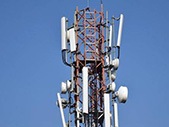 The industry is talking of ARPUs going up anywhere from 60 per cent to 80 per cent over next two-three years, and that can happen by way of tariff increase The industry is talking of ARPUs going up anywhere from 60 per cent to 80 per cent over next two-three years, and that can happen by way of tariff increase
Tariff hike in the telecom sector is "inevitable" as the current structure does not allow reasonable returns for operators, although a lot would depend on the timing given the "unprecedented" scale of the Covid-19 pandemic and resultant affordability crisis, according to EY.
Acknowledging that an immediate tariff increase may not be feasible in the current setting, Prashant Singhal, emerging markets Technology, Media & Entertainment and Telecommunications (TMT) Leader at EY said two rounds of tariff hikes can be expected in the next 12-18 months, including one in the next six months.
"Tariff hike is necessary. Telecom as spend for consumers is fairly low, and tariff hikes should likely happen over next 6 months, I am not saying it must, but sooner the better...
"One has to keep in mind the economic situation and affordability factor... but over 12-18 months, you have to have two rounds of tariff hikes, including one in the next six months, to ensure sustainability in the market," Singhal told PTI.
Whether such a hike comes through regulatory intervention or industry action remains to be seen, but the financial health of the operators necessitates revision in tariffs, he said.
"Fundamentally, if the sector has to do well, what you require is fair price for service which is being offered by companies.
"There has been one revision of tariffs in December, and if one or two rounds of upward revision happen to make it at least at par with other emerging markets, in a way that consumers don't feel the pinch, that is where the revival of the sector will happen," Singhal said.
The industry is talking of Average Revenue Per User (ARPUs) going up anywhere from 60 per cent to 80 per cent over next two-three years, and that can happen by way of tariff increase, and moving away from fixed price plans to data based on usage or consumption.
Tariff hike is inevitable, and the issue is one of timing, he asserted.
"If we did not have the pandemic, we may have seen a hike in June itself. Now because of the pandemic, which is unprecedented and extraordinary, we may see a tariff hike in next six months but it is inevitable, as current structures don't allow companies to have reasonable return on capital employed," Singhal added.
Admitting that now may not be a suitable time for initiating tariff increases, given the "affordability crisis", Singhal said that things are speeding-up and several measures have been taken by the government to ensure that the economy is back on track. (Source: Business Standard)
|
Govt strengthens telecom connectivity in Ladakh
 BSNL will be providing the coverage in all these areas. Although the government has not taken any decision to ban Chinese firms from telecom sector, it is working to make networks more secure going forward. BSNL will be providing the coverage in all these areas. Although the government has not taken any decision to ban Chinese firms from telecom sector, it is working to make networks more secure going forward.
Amid the stand-off with China at the border, the government has strengthened telecom connectivity in Ladakh and Jammu and Kashmir (J&K). According to sources, 87 uncovered villages in J&K and 57 in Ladakh will be provided telecom connectivity soon.
The decision was taken a few days ago as the government wants to cover the regions with 100% telecom coverage, so that the communication flow remains intact.
“Universal Service Obligation Fund (USOF) has taken an initiative to cover 354 uncovered remote villages of India. Out of these 354 villages, 144 are in J&K and Ladakh. After execution of this project, there will be 100% telephonic coverage of habitation in the two regions,” said a source.
Apart from that, 812 digital satellite phone terminals have been provisioned to cover remote territories of the country, of which 134 sites are in the Ladakh region, including the Galwan Valley and Hot Springs, DBO, D. Singh Post, Lukumg, Thakung and Chusul.
BSNL will be providing the coverage in all these areas. Although the government has not taken any decision to ban Chinese firms from telecom sector, it is working to make networks more secure going forward.
To start with, the government is considering a NITI Aayog proposal to roll out 4G network of BSNL using locally designed and manufactured products. BSNL is already providing connectivity at the border areas of J&K and Ladakh regions and at other difficult and hilly terrains of the country.
As the revenue potential is less in these areas, which are also strategically important, the government provides funding to BSNL from the USOF to set up infrastructure. (Source: Financial Express)
|
Jio Platforms raises Rs 6,598.38 crore from General Atlantic
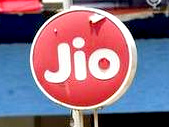 In its fourth fund raising in less than a month, Jio Platforms, a subsidiary of Asia's richest man Mukesh Ambani-controlled Reliance Industries Ltd (RIL), has raised Rs 6,598.38 crore from US PE major General Atlantic (GA). In its fourth fund raising in less than a month, Jio Platforms, a subsidiary of Asia's richest man Mukesh Ambani-controlled Reliance Industries Ltd (RIL), has raised Rs 6,598.38 crore from US PE major General Atlantic (GA).
The investment, which is GA’s largest in Asia, is in lieu of a 1.34 per cent stake, RIL said in a regulatory filing.
With this, Jio Platforms had raised Rs 67,194.75 crore from leading technology investors including Facebook, Silver Lake Partners, Vista Equity Partners and General Atlantic in less than four weeks.
The investments by leading global growth investors to help enable Jio to scale its ecosystem towards building a digital society in India, it said in a regulatory filing.
This re-emphasises Jio’s continuing attraction among global investors for its deep understanding of the Indian markets, the rapid digitisation opportunity post-Covid and its capabilities to bring cutting-edge technologies and tools such as AI, Blockchain, AR/VR, Big Data into play for all Indians.
Diverse marquee investors are becoming long-term shareholders of JPL because of a unique set of technologies and platforms under one entity. There are no similar opportunities available anywhere else globally. And it is an endorsement of the quality of the management. (Source: The Hindu Businessline)
|
After Samsung, Vivo and Oppo, Lava resumes production at Noida factory
 Smartphone maker Lava has resumed production at its Noida factory after receiving permission from authorities to begin limited operations, the company said on Saturday. Smartphone maker Lava has resumed production at its Noida factory after receiving permission from authorities to begin limited operations, the company said on Saturday.
The company has started operations with 20 per cent production capacity. Currently, the company is working with 600 employees out of its 3,500 people workforces.
Lava is not the only smartphone manufacturer to resume production in India.
Smartphone companies Samsung, Xiaomi, Vivo and, Oppo have also received approval from their respective state governments to partially resume manufacturing and assembling of devices given the ongoing lockdown, TechCrunch reported.
The South Korean electronics giant Samsung had received required permission from the Uttar Pradesh authorities to begin operations at its Noida Sector 81 factory on Thursday. It has begun operations at its Noida factory and plans to gradually increase its workforce to 3,000, the 30 per cent workforce requirement as per the guidelines, according to media reports.
Vivo and Oppo will also resume production at their respective Noida factories with 30 per cent of their capacity.
Phone makers Oppo, Vivo and Samsung had paused production at their respective Greater Noida factories in March when the Center had imposed lockdown across 75 districts impacted by Covid-19. Other smartphone makers had also shut down their factories owing to restrictions imposed by the nationwide lockdown announced on March 24.
The Centre had recently released revised guidelines for the lockdown ending on May 17, allowing for some relaxations on restrictions for Green and Orange zones which has allowed these companies to resume limited operations. (Source: The Hindu Businessline)
|
Telcos, DoT in Sync with States to Track Patients
 The Department of Telecommunications (DoT) and mobile phone operators are working in tandem with state governments to use call data of subscribers to closely track the movement of Covid-19 positive patients, besides keeping a close watch on millions of migrant labourers to help them with food and find employment.
The Department of Telecommunications (DoT) and mobile phone operators are working in tandem with state governments to use call data of subscribers to closely track the movement of Covid-19 positive patients, besides keeping a close watch on millions of migrant labourers to help them with food and find employment.
But officials clarified that only location details of calls were being used for the purpose, and not the detailed call data records (CDRs), which may have raised concerns around privacy and state surveillance.
Privacy experts, however, said such sharing still triggers concerns around data privacy since no permission has been sought from subscribers.
"If a patient moves away from his quarantine location, it means he has moved away from his geo-fencing area and alerts go out to agencies including police," said an official aware of the work done by different government bodies on Covid-19.
"The DoT is also tracking the cell sites of the patients and places they visited for 15 days prior to being tested positive. This helps to check up on those who have come in contact with the patient," added the official. (Source: Economic Times)
|
Telcos Warn of Full Service Breakdown in Virus Hotspots
 RED ALERT Cos seek urgent intervention of DoT to ensure free movement of service teams. Phone companies have warned of an imminent breakdown in telecom services across Covid-19 hotspots where their emergency teams are being blocked by local authorities. RED ALERT Cos seek urgent intervention of DoT to ensure free movement of service teams. Phone companies have warned of an imminent breakdown in telecom services across Covid-19 hotspots where their emergency teams are being blocked by local authorities.
They have, in fact, sought the urgent intervention of the Department of Telecommunications (DoT) to ensure their teams can operate freely and ensure uninterrupted mobile and internet connectivity in these sealed locations where the pandemic outbreak is severe.
Rajan Mathews, director general of Cellular Operators Association of India (COAI), in a letter dated April 9 to telecom secretary Anshu Prakash, said there could be a total breakdown of mobile and internet services if telco technicians are denied access to telecom sites in the Covid-19 hotspots. ET has seen a copy of the letter.
The COAI represents Reliance Jio Infocomm, Bharti Airtel and Vodafone Idea.
“Telecom has been recognised as an essential service in various government orders, but curfewlike restrictions are being imposed by various state governments in areas sealed off as Covid-19 hotspots where no movement of telecom services personnel is being allowed, which can lead to a complete breakdown in services,” Mathews said.
The situation, industry sources said, is particularly challenging in Delhi, Uttar Pradesh and Maharashtra where numerous locations have been notified as hotspots where the Covid-19 outbreak is severe.
The COAI, in fact, has urged the telecom secretary to “monitor developments and issue instructions to the concerned state governments” to allow movement of staff of telcos, tower infrastructure service providers, fibre optic providers and (vendor) partners to ensure fault repair and maintenance work” can be undertaken for ensuring uninterrupted connectivity in these sealed off areas. At press time, Airtel, Jio and VIL did not respond to ET's queries.
In response to COAI’s letter, DoT’s Maharashtra wing has already urged the local state police to cooperate with telecom operators and allow their field units to maintain essential telecom services in public interest in the Covid-19 hotspots. Maharashtra is among the states worst hit by the pandemic.(Source: Economic Times)
|
EGoM may be Set up for Telecom Relief Measures
 Govt likely to request SC to allow staggered AGR payments over 20 years at reduced interest rate of 8%. The government is considering setting up an empowered group of ministers (eGoM) to oversee steps to tide over the adjusted gross revenue (AGR) crisis in the telecom sector. Govt likely to request SC to allow staggered AGR payments over 20 years at reduced interest rate of 8%. The government is considering setting up an empowered group of ministers (eGoM) to oversee steps to tide over the adjusted gross revenue (AGR) crisis in the telecom sector.
The eGoM will look at ways to lower levies such as licence fees and spectrum usage charge (SUC) to help retain a three-private player market, as well as attract investments from new players.
The government is also likely to request the Supreme Court to allow affected telcos to stagger payment of AGR liabilities over up to 20 years on net present value basis, at a reduced interest rate of 8%, against the 12% that is usually charged on dues, a senior government official told ET.
Other steps expected to be announced include giving a sovereign guarantee for telcos to raise up to 15% of their AGR dues from state-owned banks, and the freezing of interest and penalty components as on October 24, the date on which the Supreme Court ruled in favour of the government’s calculation of AGR. Several of these measures were discussed at the Cabinet meeting last week. “The Cabinet has to find a middle path to ensure the Supreme Court’s judgement is upheld and honoured, while the sector isn’t reduced to a duopoly, and the banking system doesn’t see another massive default, as it could have a domino effect on the economy, including job losses,” said the official quoted earlier.
The director general of the Press Information Bureau, did not respond to an email seeking comment till press time on Sunday.
SC Final Call Tomorrow
The Supreme Court will take a final call at the next hearing on March 17 on the number of years over which the payment could be spread, the official said. It is, however, unclear if the hearing will be held as scheduled because of the precautions taken over the Covid-19 outbreak. The package being considered would provide immediate relief to telecom companies — primarily Vodafone Idea that is on the brink of collapse —prevent the sector from being reduced to a duopoly, and save banks from massive loan defaults, the official said.
The move to stagger the payments may also help Bharti Airtel and Tata Teleservices, in case they face higher AGR demands from the telecom department (DoT) than they have estimated and paid and if those additional demands are upheld by the courts, the officials added. The government is trying to make the sector attractive to investors as at the highest levels, the government is “convinced” that India needs at least three, and probably more, private telecom players to establish a strong, robust and competitive digital infrastructure, a second official said.
“Despite moving to the auction regime, we still have such high licence fees, SUC. And then there is GST on all payments telcos make to the government … it cascades and inflates the burden … the eGoM could also explore rationalisation of levies,” the official said.
Historically, the finance ministry has pushed back the telecom ministry’s calls to reduce levies for improving health of the sector, hurt badly by over three years of price wars, coupled with debt of more than Rs7 lakh crore.
The Supreme Court ruling that AGR includes non-core items, left 15 telcos — including that are now defunct — facing more than Rs 1.47 lakh crore in licence fees, SUC, interest and penalties, further adding to the gravity of the sectoral situation. Licence fees and SUC are paid on the basis of AGR.
Vodafone Idea has warned it will shut shop unless given some relief on its AGR liabilities, leaving just Bharti Airtel and Reliance Jio.
“(It’s) not an ideal situation and the government realises that,” the second official said, adding that encashing bank guarantees of Vodafone Idea would force it to shut down, leaving over 300 million customers in chaos.
Moreover, banks have an exposure of over Rs 35,000 crore in Vodafone Idea, which would then turn into another non-performing asset.(Source: Economic Times)
|
 Rejig to remove telecom regulatory overhang over Airtel Digital, offer monetisation options
Rejig to remove telecom regulatory overhang over Airtel Digital, offer monetisation options

 Airtel, Jio may Spend More on Airwaves. Trigger: Shorter notice for new tech use, such as 5G on 4G airwaves. Bharti Airtel and Reliance Jio Infocomm may spend 15-20% more than previously projected to buy spectrum in the March auctions, prompted by the government’s move to halve the notice period that operators need to give to offer new technologies such as 5G on 4G airwaves, said analysts.
Airtel, Jio may Spend More on Airwaves. Trigger: Shorter notice for new tech use, such as 5G on 4G airwaves. Bharti Airtel and Reliance Jio Infocomm may spend 15-20% more than previously projected to buy spectrum in the March auctions, prompted by the government’s move to halve the notice period that operators need to give to offer new technologies such as 5G on 4G airwaves, said analysts.
 Chinese telecom giant Huawei has hired former Brazilian President Michel Temer as an advisor as the auction for next-generation 5G wireless networks approaches in the country, ZDNet reported.
Chinese telecom giant Huawei has hired former Brazilian President Michel Temer as an advisor as the auction for next-generation 5G wireless networks approaches in the country, ZDNet reported.
 In fact, before the matter was sent to Trai for a review, a seven-member internal committee of DoT had rejected by 4:3 the regulator's recommendation to levy the penalty and had left the final decision to the DCC.
In fact, before the matter was sent to Trai for a review, a seven-member internal committee of DoT had rejected by 4:3 the regulator's recommendation to levy the penalty and had left the final decision to the DCC.  Moody’s Investor Service has affirmed Bharti Airtel’s Ba1 corporate family rating (CFR) and revised the outlook to `stable’ from `negative,’ following clarity around adjusted gross revenue (AGR) dues payment timelines and improved profitability of the Sunil Mittal-led telco’s India mobile services business.
Moody’s Investor Service has affirmed Bharti Airtel’s Ba1 corporate family rating (CFR) and revised the outlook to `stable’ from `negative,’ following clarity around adjusted gross revenue (AGR) dues payment timelines and improved profitability of the Sunil Mittal-led telco’s India mobile services business.
 IT services provider Tech Mahindra has the capability to build and run an entire 4G or 5G network in India, and its partnership with Japanese telco Rakuten will help it get more meaningful business in India’s telecom industry, a senior executive said.
IT services provider Tech Mahindra has the capability to build and run an entire 4G or 5G network in India, and its partnership with Japanese telco Rakuten will help it get more meaningful business in India’s telecom industry, a senior executive said.
 Amid heightened anti-China sentiments in India, Swedish telecom equipment maker Ericsson has said it hopes to win contracts in the Indian telecom market on the strength of its technology leadership, and added that as a practice, the company does not base business plans on matters not under its control.
Amid heightened anti-China sentiments in India, Swedish telecom equipment maker Ericsson has said it hopes to win contracts in the Indian telecom market on the strength of its technology leadership, and added that as a practice, the company does not base business plans on matters not under its control.
 Tech Mahindra and ITI are also looking to tap the global market with their upgraded 4G and 5G network equipment based on the success with the BSNL tender and implement the solution.
Tech Mahindra and ITI are also looking to tap the global market with their upgraded 4G and 5G network equipment based on the success with the BSNL tender and implement the solution.
 The industry is talking of ARPUs going up anywhere from 60 per cent to 80 per cent over next two-three years, and that can happen by way of tariff increase
The industry is talking of ARPUs going up anywhere from 60 per cent to 80 per cent over next two-three years, and that can happen by way of tariff increase
 BSNL will be providing the coverage in all these areas. Although the government has not taken any decision to ban Chinese firms from telecom sector, it is working to make networks more secure going forward.
BSNL will be providing the coverage in all these areas. Although the government has not taken any decision to ban Chinese firms from telecom sector, it is working to make networks more secure going forward.
 In its fourth fund raising in less than a month, Jio Platforms, a subsidiary of Asia's richest man Mukesh Ambani-controlled Reliance Industries Ltd (RIL), has raised Rs 6,598.38 crore from US PE major General Atlantic (GA).
In its fourth fund raising in less than a month, Jio Platforms, a subsidiary of Asia's richest man Mukesh Ambani-controlled Reliance Industries Ltd (RIL), has raised Rs 6,598.38 crore from US PE major General Atlantic (GA).
 Smartphone maker Lava has resumed production at its Noida factory after receiving permission from authorities to begin limited operations, the company said on Saturday.
Smartphone maker Lava has resumed production at its Noida factory after receiving permission from authorities to begin limited operations, the company said on Saturday.
 The Department of Telecommunications (DoT) and mobile phone operators are working in tandem with state governments to use call data of subscribers to closely track the movement of Covid-19 positive patients, besides keeping a close watch on millions of migrant labourers to help them with food and find employment.
The Department of Telecommunications (DoT) and mobile phone operators are working in tandem with state governments to use call data of subscribers to closely track the movement of Covid-19 positive patients, besides keeping a close watch on millions of migrant labourers to help them with food and find employment.
 RED ALERT Cos seek urgent intervention of DoT to ensure free movement of service teams. Phone companies have warned of an imminent breakdown in telecom services across Covid-19 hotspots where their emergency teams are being blocked by local authorities.
RED ALERT Cos seek urgent intervention of DoT to ensure free movement of service teams. Phone companies have warned of an imminent breakdown in telecom services across Covid-19 hotspots where their emergency teams are being blocked by local authorities.
 Govt likely to request SC to allow staggered AGR payments over 20 years at reduced interest rate of 8%. The government is considering setting up an empowered group of ministers (eGoM) to oversee steps to tide over the adjusted gross revenue (AGR) crisis in the telecom sector.
Govt likely to request SC to allow staggered AGR payments over 20 years at reduced interest rate of 8%. The government is considering setting up an empowered group of ministers (eGoM) to oversee steps to tide over the adjusted gross revenue (AGR) crisis in the telecom sector.






